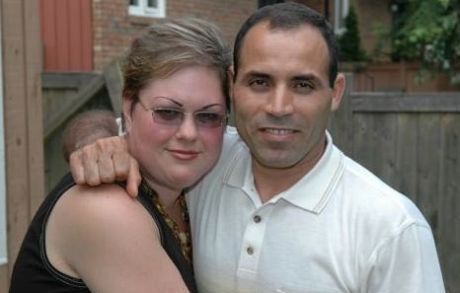News
You are here
Supreme injustice as court upholds secret trials

May 30, 2014
In a travesty of justice emanating from the so-called “war on terror,” on May 14 the Supreme Court of Canada upheld the national security certificate against Mohamed Harkat, who now faces the prospect of deportation to Algeria.
The decision was a result of Harkat’s challenge to the constitutionality of security certificates, which were struck down by the Supreme Court in 2007 because they deny the right of the accused and their lawyer to know the evidence brought against them and thus meet the case allegedly against them. They allow for detention without public trial, a fundamental challenge to accepted notions of justice.
The government response to the 2007 decision was cosmetic: the appointment of independent lawyers with high-level security clearance to represent the interests of the security certificate holder, known as “special advocates.” But their ability to act on behalf of detainees is extremely limited and is not a solution to the problem of secret evidence.
For example, Harkat’s legal team challenged the use of summaries of informants’ recorded conversations as evidence rather than the actual tapes of intercepted phone calls that were destroyed under the pretext of “security.” Incredibly, the court found the use of summaries acceptable.
The decision not only means that Harkat can be unjustly deported to torture or death in Algeria, but also that the general ruling on fair and reasonable process in his case has legitimized the secret trial process as a whole. The court said security certificates "do not violate the named person's right to know and meet the case against him, or the right to have a decision made on the facts and the law."
In future, this decision puts an onus on the trial judge who hears a specific case to play a "gatekeeper role" for anyone issued with a security certificate. This is a strange reversal of the original Supreme Court decision in 2007, which found undue onus on judges to be a factor in the problem of fairness, given that judges cannot cross-examine. This was a problem the “special advocates” were supposed to alleviate.
Not only was the constitutionality of the certificates upheld, there was not even a ruling for a new hearing for Harkat or any partial ruling against the use of secret or destroyed evidence. The only instance where the eight Supreme Court justices were not unanimous was in ruling that CSIS informants are not privileged: that is, they may, at times, be cross-examined in a closed court by special advocates assigned to the security-certificate holder. But the court allowed for the identities and testimony of the informants to be kept secret from the security certificate holder.
Chief Justice Beverley McLachlin, who wrote the decision, said that Harkat "potentially faces deportation to a country where he may be at risk for torture or death, although the constitutionality of his deportation in such circumstances is not before us in the present appeal."
Five men were charged under these certificates, but the ones for Adil Charkaoui and Hassan Almrei were quashed in 2009.Two others remain under house arrest, Mohammad Mahjoub and Mahmoud Jaballah.
The deportation process against Mohamed Harkat can now begin, starting with a Pre-Removal Risk Assessment. Although it should reveal the very real possibility of torture and even death that Harkat could face in Algeria, Canada’s system of risk assessment is fundamentally flawed, a feature of a system stacked against immigrants and refugees. Said Harper’s Public Safety Minister Steven Blaney: "Our government is pleased with the decision made by the Supreme Court in regard of Mr. Harkat."
Keeping up the public pressure remains important, both for the fate of those facing deportation and to build on the wide public sentiment that already exists for the final abolition of unjust secret trials.
You can sign the Statement Against Security Certificates online at http://www.harkatstatement.com.
If you like this article, register for Marxism 2014: Resisting a System in Crisis, a weekend long political conference June 14-15 in Toronto. Sessions include "Global resistance to imperialism," "Secularism and religious accommodation," and "Why is capitalism in crisis."
Section:
Topics:









